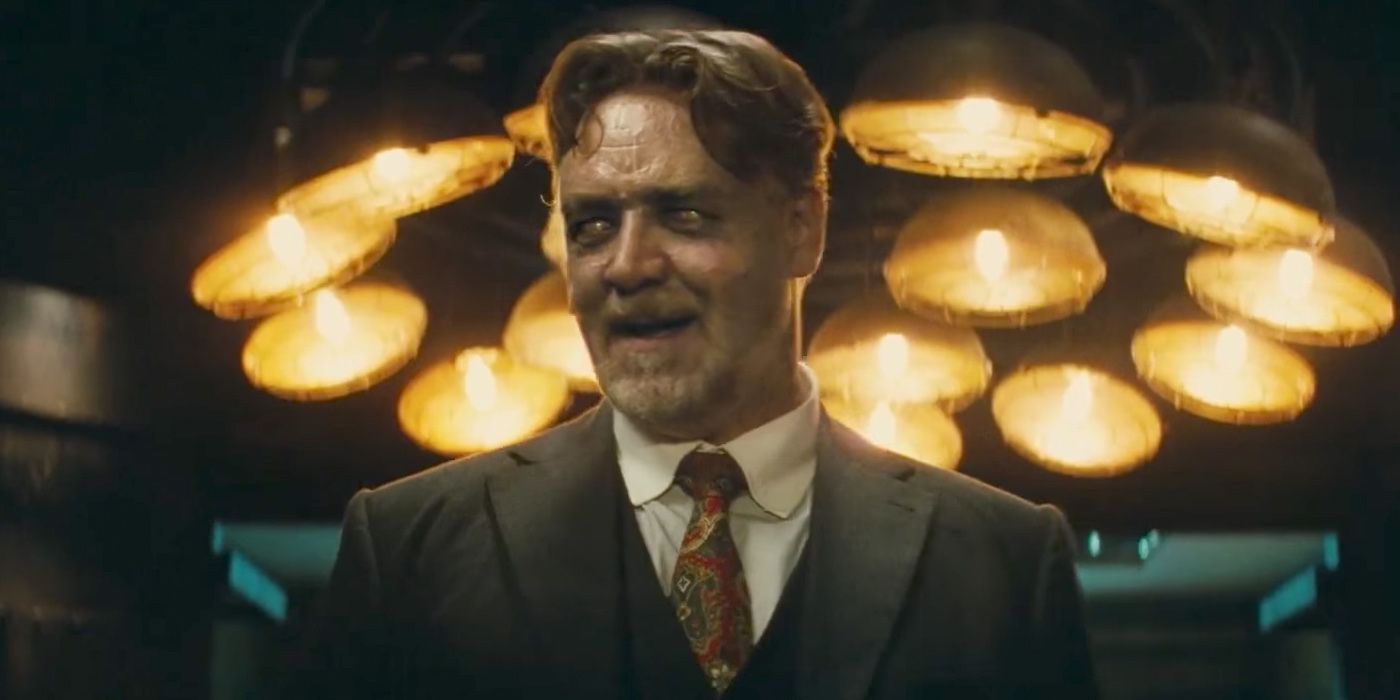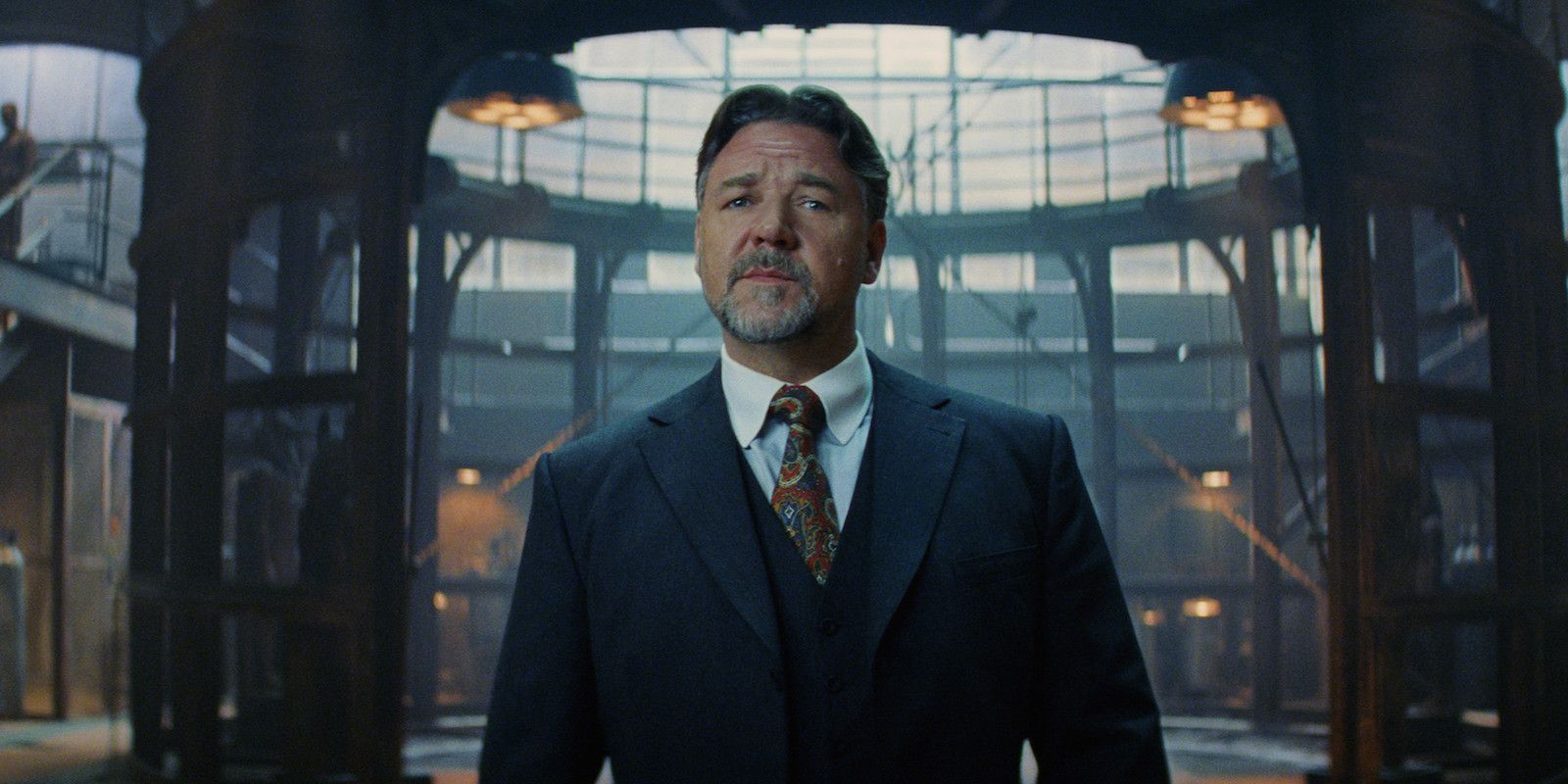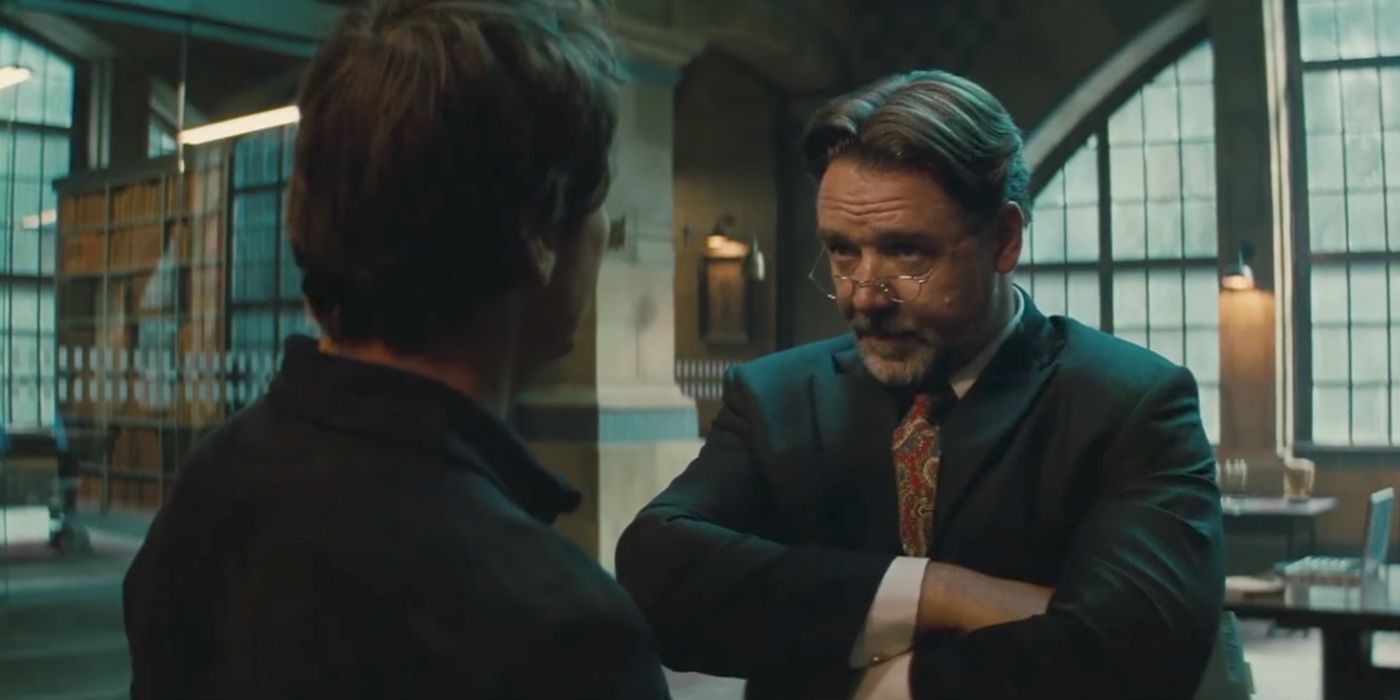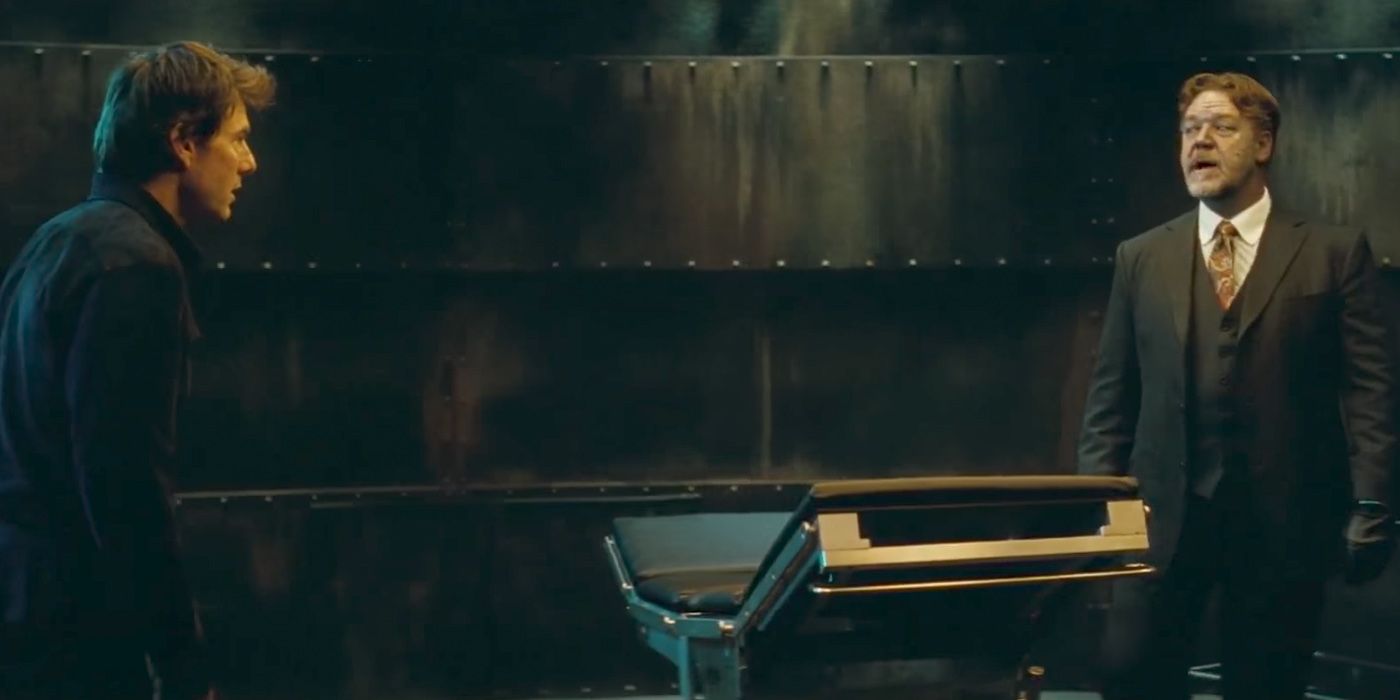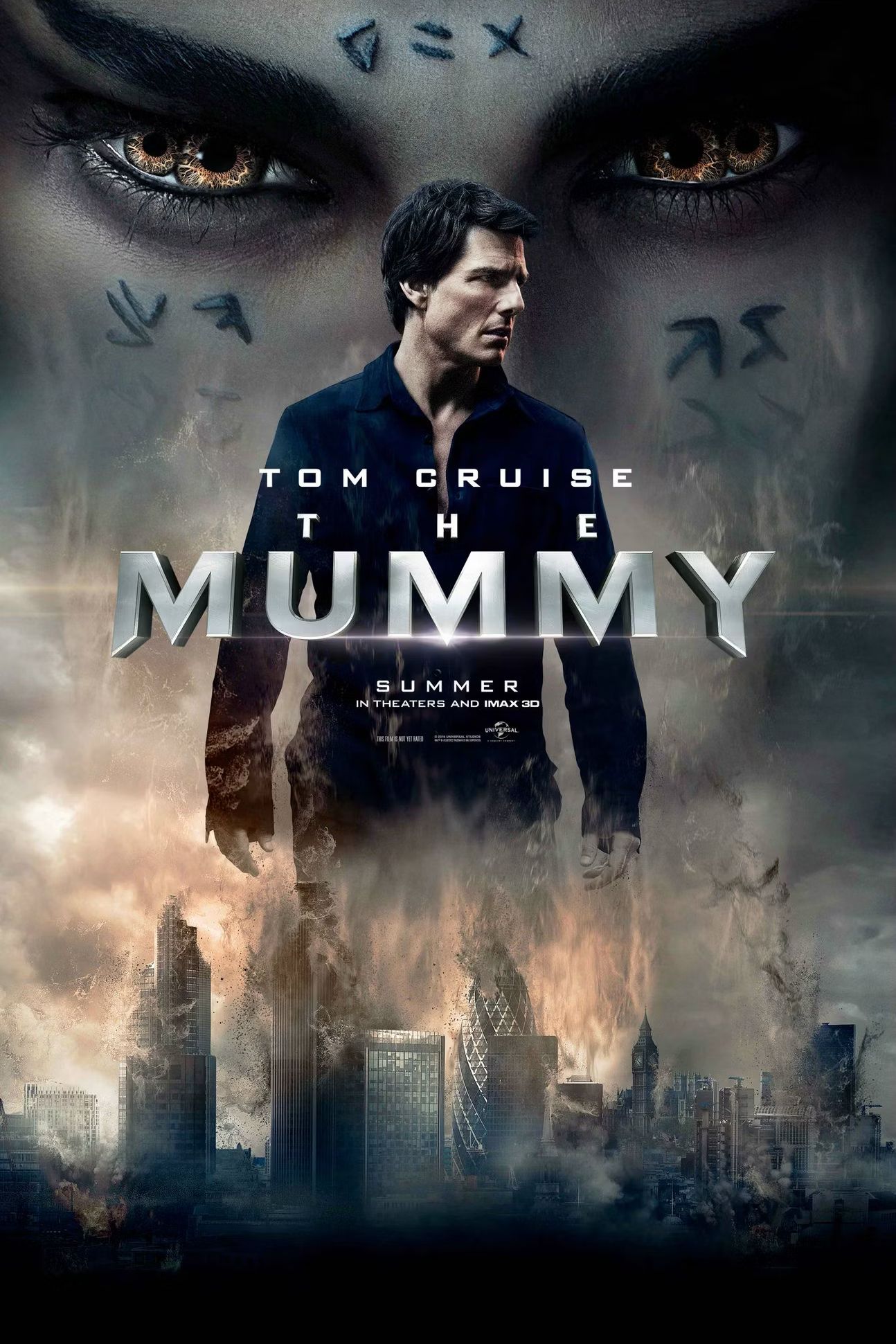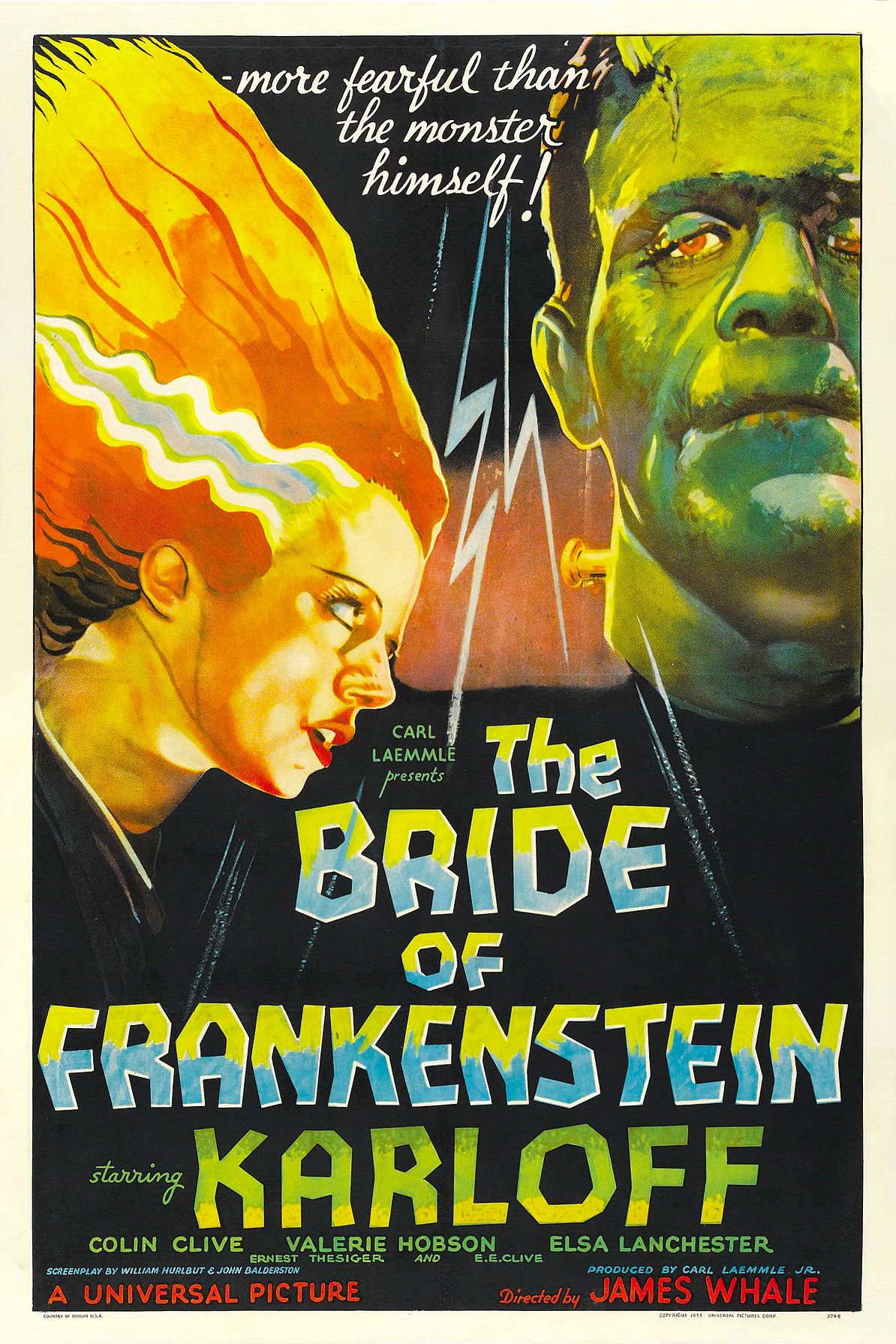Spoilers for The Mummy.
-
Could Russell Crowe be the worst Jekyll & Hyde of all time? One of the earliest indications of The Mummy's Dark Universe designs was the casting of Russell Crowe opposite Tom Cruise as Dr. Henry Jekyll. This was, at first, exciting; it promised that the reboot of a franchise that was last in cinemas less than ten years ago would be making some efforts to expand its scope and, obviously and most prominently, it meant we'd be seeing the iconic dual personality scientist brought to life by a major screen presence.
Unfortunately, Crowe is terrible. Worst of all time terrible. There have been over 50 different takes on the character(s) across film and TV (the story is now in the public domain so easy to adapt with minimal legal complications) and while many of the outings are clunkers that ditched the strong source, at least there's a fair understanding of what the dichotomy means.
One of the strangest things about Robert Louis Stevenson's book from a contemporary standpoint is that, while we take the shared identity as writ, it was the novella's big twist; that meek Henry actually transformed into hunched, brutish Edward was revealed posthumously in the final chapter. However, like Planet of the Apes being Earth or Darth Vader being Luke Skywalker's father, it's become an accepted fabric of the story that any adaptation jumps off of. That means many versions skip over vast swathes of the novel and instead get to the central post-reading idea. Like much of The Mummy, though, Alex Kurtzman's interpretation doesn't have that.
A Modern Dr. Henry Jekyll
It's definitely possible to do a modern update of Jekyll & Hyde well. Before he gave us Smith/Capaldi Doctor Who and Sherlock, Stephen Moffat wrote the James Nesbitt-starring Jekyll that introduced us to Henry's descendant discovering his tortured hereditary affliction, exploring the themes of the novel concurrently with its cultural impact. It even had a secret organization that was trying to contain such afflicted people, so serves as a perfect example of how The Mummy's idea was, at conception, interesting.
Unfortunately for Crowe, part of the problem actually lays at the doorstep of Prodigium. Because his primary purpose is to set up the S.H.I.E.L.D. of Dark Universe, Jekyll is lumbered with a lot of expositional scenes, spouting endless aggrandizing dialogue that has little purpose to the film's narrative or his character's story. This is the most blatantly sequel-baiting side of The Mummy and wrapping him up so tightly in this side of things only damages the character.
But on a pure personality level he, fails too. Kurtzman takes the premise of the twist being widely accepted and uses the tease of seeing Hyde's transformation as the entire motivation for Jekyll's presence; throughout his early scenes you're just waiting to see him go crazy. Which would be fine if the director and actor hadn't so completely missed the mark in both sides of Dr. J.
Next Page: [valnet-url-page page=2 paginated=0 text='How%20The%20Mummy%20Totally%20Misunderstands%20Jekyll%20%26%20Hyde']
Henry Jekyll Is The Bad Guy
The Jekyll & Hyde notion is so simple we've not even bothered to explain it plainly thus far in this article: the former is good, the latter evil. That's the entire point and everyone knows it. But perhaps someone should have just reminded Alex Kurtzman that.
The Henry Jekyll we meet in The Mummy has already undergone the fateful experiment and developed a short-term cure to fix it - an injection of a serious amount of anti-toxin that, based on the film's editing (which isn't wholly reliable), needs topping up every few hours. This takes us a step on from the usually conflicted character and makes Hyde more of a controlled, dark past; something that's narratively fitting for the head of a monster-hunting secret society.
Problems arise in what Jekyll's plain motives are. He wants to experiment on Princess Ahmanet but also complete the ancient curse involving God of Death Set that was stopped before her living mummification, a proccess which she's now transferred to Tom Cruise's Nick Morton; Jekyll's plan is to possess and then kill our protagonist. The motivations are fumblingly altruistic but there are no two ways around it: he is, essentially, the bad guy.
It is talked about in the "greater good" sense and indeed there could have been something in here about the clash between modern society and ancient mysticism (after all, The Mummy 1932 was framed by the British Museum's acquisition of many sacred artifacts from across the Empire and beyond) but instead it just kind of happens without clear thematic purpose. Worse, this "evil company" thread is eventually rendered moot when Nick eventually "wins" against Ahmanent and Prodigium by completing said curse; all sides wanted pretty much the same thing.
That's unfortunate for the movie and worse for the character as it means the innate contrast bubbling beneath the surface is nullified; Jekyll is as bad as if not worse than Hyde. And Hyde's a problem by himself.
Eddie Hyde Is Laughably Bad
Do not let Russell Crowe do accents. His British Isles-hopping Robin Hood has been the butt of jokes for most of the 2010s and his singing Les Miserables suggested he just wasn't quite in control of his vocal chords. Here, his Jekyll is already a poor performance, prim and proper English gent when doling out exposition and needlessly eccentric otherwise in the character scenes, but it's practically Oscar-worthy next to Hyde.
"Eddie" Hyde is a spectacle, that's for sure. Jekyll's veins pop out, his skin turns green, eyes yellow (all CGI-augmented, of course) and he adopts a cockney accent that would make Dick Van Dyke wince. Cue a fight scene that goes on for a minute before Cruise knocks him out. That's really it; it's a very brief sequence that feels either shoehorned into the script at the last minute or a pivotal second act turn vastly cut down in response to Crowe's bad performance.
Either way, the film totally misses the opportunity to do anything of worth with Hyde. He's so poorly executed and brief that you don't get to really get to experience any monster thrills - not a good thing when he's surely intended to be a key part of the series in that respect going forward - and neither is the briefly dangled possibility of a different relationship between the man's two sides explored or even made clear.
-
What makes the whole thing so much worse is that this is 100% meant to be a character we want more of. It's the most overt piece of set up for the future of the Dark Universe and, while The Mummy is a bad film by most measures, this is the most actively awful element. Can someone send Crowe a copy of the book to study for Bride of Frankenstein?

